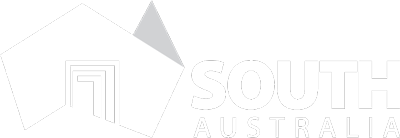Developing Skills For Your Future As Well As For Today
How will your job be different five years from now? Will your job even exist in its present form in five years? In 10 or even 20 years? And over this time, what will happen to the company and industry you work for?
This article was originally published on Mind Tools.
We really don't know what the future holds. What we do know for certain is that change is a constant in the workplace. This means that what we are doing now will be different in the future.
How can you predict and prepare for this workplace of the future? What should you be doing now to make sure you don't find yourself facing a dead end in your career, with no opportunity to change direction without crashing?
This article gives you some strategies you can begin pursuing now. They will help you keep your skills current and your opportunities open. Pick and choose from among them to build your unique Career Proofing Kit. And remember, as your own circumstances change, your kit may need to adapt as well. Refer back to this list often and take inventory of what you should be doing either differently from, or in addition to, what you are doing now.
Career Proofing Kit
Find an "Academy" company
If you're early in your career, get a job at a company renowned in its industry for developing its people. Traditional examples are GE, Toyota and Mars. When you work for this kind of company, you are enrolled in a continuous development program that goes well beyond the technical skills you need for your current role. This forms a great foundation for a successful career.
Get and remain tech-savvy
Much of the change we see has to do with new technology. We keep finding faster and leaner ways to do things. Force yourself to keep your technical skills current, even if new developments don't seem directly related to your current job. Otherwise, you'll get left behind and may have to catch up a huge amount before you can head off in a new direction in the future. If that means learning the newest online tools like blogging and web conferencing, do it. If you're in a highly technical field of work, be proactive and stay current – even when your company does not.
Develop your competencies, skills and experience
Along with technical skills, it is critically important to continue your professional development to remain in demand in the marketplace. You need to develop the transferable skills that are universally sought by employers. Leadership, communication, innovation, stress management and interpersonal skills are all fundamental requirements of the jobs of today and tomorrow. Here are some ways to do this:
- Choose two competencies or skills to improve each year. Monitor and track your progress.
- Develop a five year learning plan to acquire the knowledge and education you need.
- Develop cross-functional skills. Beyond a certain stage in your career and in uncertain environments, specialization is no longer the route of choice. It can pay off for some; however, it has high risk of obsolescence attached.
Your specific technical skills may get out of date. That's why you see nurses with business skills and technology experts with financial experience. A broad range of competencies, skills and abilities can help you secure a new job or may even open the door to working in a new industry.
To maximize your chances of success, use the tips found in the Personal Goal Setting article to help you set development goals effectively, and if you have our Personal Development Plan Workbook, make sure you use it to plan your skills development.
"Think global"
In many industries, geographical barriers to business are getting less and less relevant. Your co-workers, clients and stakeholders now and in the future can be from anywhere in the world. You need to acquire the ability to work within the international marketplace by:
- Learning about working with diverse cultures.
- Asking for assignments that require international exposure.
- Learning another language.
The more experience you get, the more confidence you will have when working in the global marketplace. This will make you much more attractive to employers of the future.
Create and maintain a success journal
The time to start thinking about your accomplishments and skills is not when you are looking for a new job. You have to be proactive and take continuous inventory of what you do really well, the accolades you have been given and the noteworthy results you've been responsible for. Employers want to know what you will do for them. When you have a ready list of things you have done, it is much easier to recall your most relevant rewards and skills.
- Track your duties, projects and results.
- Keep a list of professional development activities you've participated in.
- List the training you've completed.
- Note your volunteer work.
- File your performance reviews and the written letters and emails you receive that note your performance.
Use this success journal to track your strengths and successes and also to affirm your wonderful qualities as well. All of us need to boost our confidence and self esteem from time to time. Having a list of objective strengths and accomplishments can do a lot to improve your motivation and belief in your abilities.
Build and maintain a professional network
You should be developing relationships with people both within and outside your organization. These people will be invaluable as the landscape of work changes. They can bring you along with them as they weather the changes and can provide opportunities when your current position looks a bit uncertain. When you add a mentor or two to your network, you have the added bonus of learning new skills, technologies and strategies that will help you move your career in the direction you want.
- Collect business cards.
- Keep track of former bosses and colleagues.
- Join professional networking associations.
- Participate in a wide range of activities and build relationships beyond your current career or industry.
Scan the environment
Be aware of changes and trends in the economy, your profession and the industry you are in. No one can accurately predict the future; however, stay ahead of the crowd by keeping yourself informed and choosing to work in industries and for employers that have long-term sustainability.
- Take note of business trends by reading a good newspaper and the industry press.
- Complete a PEST analysis for your industry and others you are interested in.
- Analyze the attractiveness of your company using Porter's Five Forces and USP Analysis
- Back your hunches and analysis with action. If you think your company or industry is in trouble, it's best to get out while the going's good!
Overall, avoid industries and companies that are on a downward slide. Being an expert in a dying field may provide a niche strategy into the medium term; however, you will eventually have to leave. It is better to prepare now.
Keep a clear career path open
You may be fortunate enough to be in an organization where there's a clear and attractive career path ahead of you. For many, this will not be the case.
This may not be a problem if you're in a fast growth industry – if you're good at what you do, opportunities will most-likely appear with alarming regularity. However if you're in a slow growth industry or are one in decline, then this is a problem: There may be no onward path, and development may be blocked, however hard you work. This will lead to frustration, boredom and, in the long term, failure to achieve your potential.
This is where you need to review your options and take action to unblock your career, even if it means a job- or career-change. See our article on Career Planning to find out how to do this.
Develop resilience
Because the future is uncertain, you will probably encounter setbacks no matter how much you prepare and plan. People who will emerge successful are those with the ability to bounce back and consider such setbacks as learning experiences.
- Evaluate and affirm your strengths on a regular basis.
- Develop realistic and achievable goals, monitor your progress and identify what is holding you back.
- Build your flexibility and maintain your enthusiasm despite what is happening around you.
To learn more about resiliency, listen to the Expert Interview with Cal Crow.
All of these techniques can be very useful as you begin to plan and prepare for your future career(s). And they all have in common the elements of risk management and career planning. You need to become good at both to secure your future career.
Key Points
While your job description may not be relevant in the future, you can ensure the skills you bring to the table are. With some forethought and planning, you can take control of your future career today. The key is not so much how skilled you are at predicting what will happen, it is how attuned you are to the early indications of change. When you realize that change is constant and you are constantly planning so you stay ahead of the game, you will find yourself in a great position to recognize and capitalize on opportunities that present themselves.










